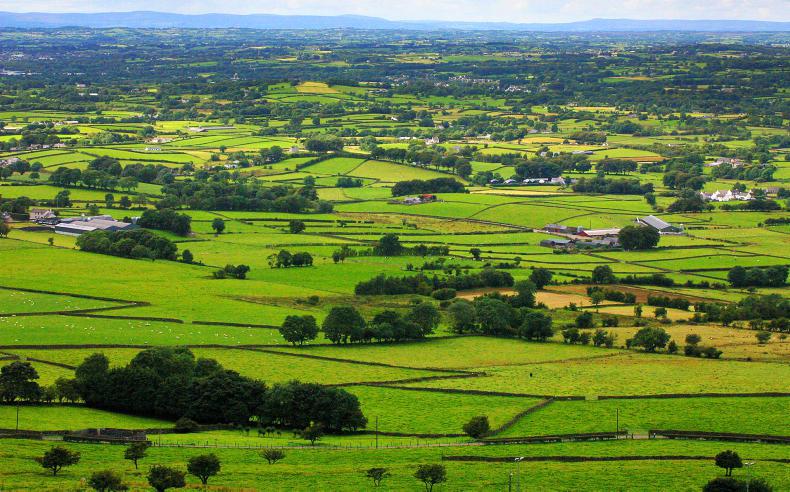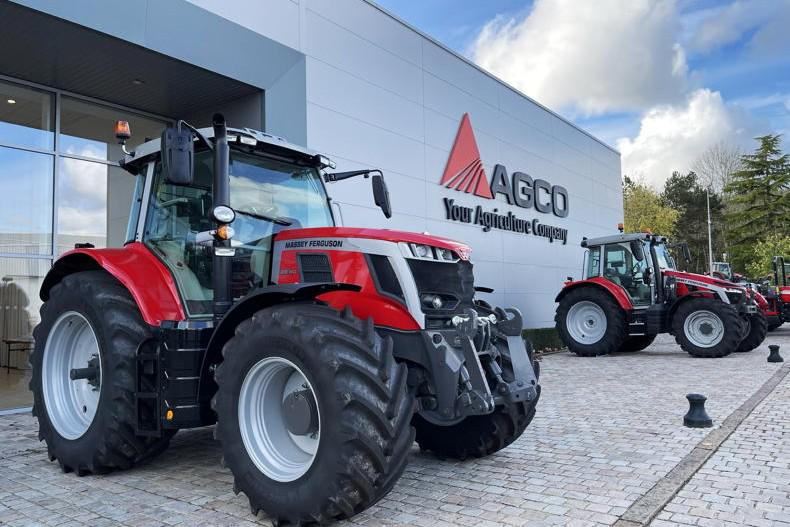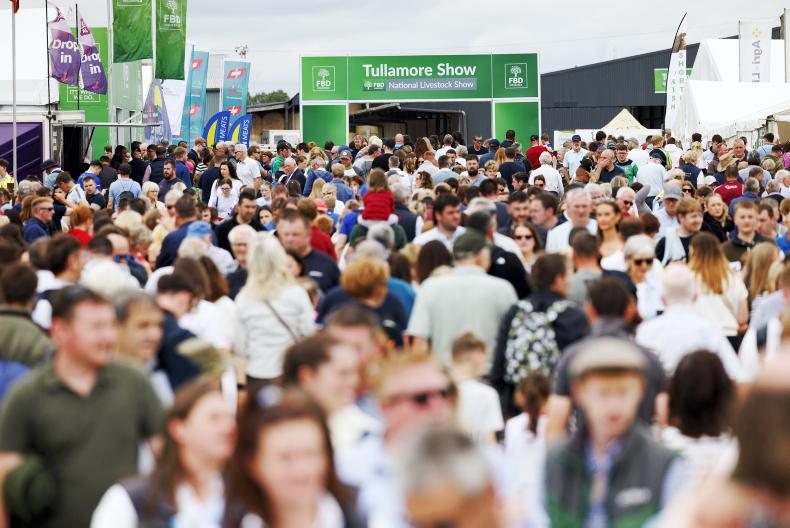Over the past few months, we have seen many large and multinational companies making commitments to certain elements of sustainability. Some are to decrease their carbon footprint, others will encourage biodiversity, some are pushing towards renewable energy and many are pushing towards all these goals.
Are these stated intentions yet another exercise in marketing in response to the proclaimed pressures on modern food production? Are we looking at real company commitment or an exercise in public relations to show a limited element of environmental responsibility?
Will companies realise that incentivising farmers via real price premia is by far the best way to drive sustainable practices along the food chain?
The concept of sustainability does not work unless it is fully embraced along the food chain, from farm to fork. Last week, Lorcan Allen reported on the move by Nestlé to pay a price premium for food produced by regenerative agriculture, a term that is perhaps unfortunate because agriculture should never have let itself get to the stage where it needs regeneration.
Will companies realise that incentivising farmers via real price premia is by far the best way to drive sustainable practices along the food chain?
The need for good farming
There are many descriptive terms now used in food production systems, sometimes from within agriculture, sometimes outside. In my opinion, these can all be distilled back to a single description – ‘good farming’. This comment is not meant to be disrespectful to good farmers, but there is a difference between a good farmer and good farming.
Most of the practices in modern farming were driven by research and advice, but the direction of travel was set by bigger companies, who drove the race to the bottom on prices, and ultimately by consumer choices and export requirements.
A cheap food policy does nothing for sustainability
With cheap food being the major pressure, primary producers were forced to find production efficiencies to survive.
These became the drivers and traditional practices driven by true sustainability were discarded. Back then, farmers produced much more of the food for their families. Now, food is so cheap that it would not pay a farmer for his/her time and cost to produce those few drills of vegetables.
A cheap food policy does nothing for sustainability and while the language of Farm to Fork is pushing sustainable practices back on to farmers, there is little in it to suggest a significant deviation from a cheap food policy.
Pay the piper
Some companies appear to be recognising the fundamental issues in the need for changes at farm level. Farmers have great difficulty thinking green when they are farming in the red, or very close to it.
Profitability is essential to drive change and, therefore, the driver of real sustainability is economics and product price differentiation.
A few large players have already taken this approach and are offering price premia to suppliers who meet agreed sustainability protocols.
There are a number of such payments in the dairy sector and Irish Distillers is now paying a price premium to growers who meet a range of sustainability criteria.
The more farmgate prices revert to those of commodities, the greater is the pressure on farm margins and incomes
Where a price premium exists, farmers can quickly access the cost-benefit of going down that road. Those in the food chain who want it know they have to pay for it. It is easy to judge the worth of these premia when a market remains for conventional product. Many farmgate produce buyers are being, or will be, forced to take broadly similar measures over time.
The fear is that all producers will be pushed towards specific standards and practices that add cost. But when sustainable practices become the ‘norm’, will these essential payments continue? The more farmgate prices revert to those of commodities, the greater is the pressure on farm margins and incomes.
The EU seems to want sustainability at no extra cost, but this seems impossible
Ultimately, this is largely what brought about the loss of sustainable practices in the first place. Farmers have good reason to believe that double standards exist in the food chain, with native suppliers being forced to jump through hoops to have the right to supply, while cheap imported product is used in the same process.
A successful drive for sustainability will depend on having an official watchdog, plus the vigilance of consumers. When traceability was imposed on the food chain, it quickly became a right to sell and a net cost to producers. The EU seems to want sustainability at no extra cost, but this seems impossible.
Get farm savvy
Against this background, farmers need to concentrate on getting a premium when it is available. But the greater focus must be on doing the simple things well on farm. These are the things that bring output benefit or cost reduction.
These may or may not come under the sustainability premium banner, but these actions are likely to be the most durable responses over time.
Kerry Group pushing to
100% renewable electricity
Renewable energy is one of many strings in the sustainability bow. We see refrences to the use of technologies that use sunlight, anaerobic digestion and wind to generate power for farm requirements such as water heating, running large storage fridges, etc, and, for processing, the operation of industrial drying facilities.
Renewable energy can be as small as a photocell to charge your phone, roof panels for jobs such as heating water or photovoltaic panels to produce electrical power. Projects can vary in size and scale right up to the Project Clover proposal to produce a significant quantity of biogas to replace fossil fuels for the thermal energy requirement in drying milk.
The move is claimed to decrease its carbon footprint by over one million tonnes between now and 2025
Most of these fade into insignificance in comparison to the recent announcement by Kerry Group that it will use 100% renewable electricity by 2025. This is not just in Ireland, but across all its global operations. The move is claimed to decrease its carbon footprint by over one million tonnes between now and 2025.
Kerry announced that the transition to 100% renewable electricity is part of its goal to cut its operational emissions by 33% over the next decade and to reach net-zero emissions before 2050. It is using a broad range of measures across its global business to support its transition to its broader goal of net zero carbon.
While the move to renewable energy will have an immediate impact, some of the other measures necessary to achieve its objectives will take much longer to take effect.
Over the past few months, we have seen many large and multinational companies making commitments to certain elements of sustainability. Some are to decrease their carbon footprint, others will encourage biodiversity, some are pushing towards renewable energy and many are pushing towards all these goals.
Are these stated intentions yet another exercise in marketing in response to the proclaimed pressures on modern food production? Are we looking at real company commitment or an exercise in public relations to show a limited element of environmental responsibility?
Will companies realise that incentivising farmers via real price premia is by far the best way to drive sustainable practices along the food chain?
The concept of sustainability does not work unless it is fully embraced along the food chain, from farm to fork. Last week, Lorcan Allen reported on the move by Nestlé to pay a price premium for food produced by regenerative agriculture, a term that is perhaps unfortunate because agriculture should never have let itself get to the stage where it needs regeneration.
Will companies realise that incentivising farmers via real price premia is by far the best way to drive sustainable practices along the food chain?
The need for good farming
There are many descriptive terms now used in food production systems, sometimes from within agriculture, sometimes outside. In my opinion, these can all be distilled back to a single description – ‘good farming’. This comment is not meant to be disrespectful to good farmers, but there is a difference between a good farmer and good farming.
Most of the practices in modern farming were driven by research and advice, but the direction of travel was set by bigger companies, who drove the race to the bottom on prices, and ultimately by consumer choices and export requirements.
A cheap food policy does nothing for sustainability
With cheap food being the major pressure, primary producers were forced to find production efficiencies to survive.
These became the drivers and traditional practices driven by true sustainability were discarded. Back then, farmers produced much more of the food for their families. Now, food is so cheap that it would not pay a farmer for his/her time and cost to produce those few drills of vegetables.
A cheap food policy does nothing for sustainability and while the language of Farm to Fork is pushing sustainable practices back on to farmers, there is little in it to suggest a significant deviation from a cheap food policy.
Pay the piper
Some companies appear to be recognising the fundamental issues in the need for changes at farm level. Farmers have great difficulty thinking green when they are farming in the red, or very close to it.
Profitability is essential to drive change and, therefore, the driver of real sustainability is economics and product price differentiation.
A few large players have already taken this approach and are offering price premia to suppliers who meet agreed sustainability protocols.
There are a number of such payments in the dairy sector and Irish Distillers is now paying a price premium to growers who meet a range of sustainability criteria.
The more farmgate prices revert to those of commodities, the greater is the pressure on farm margins and incomes
Where a price premium exists, farmers can quickly access the cost-benefit of going down that road. Those in the food chain who want it know they have to pay for it. It is easy to judge the worth of these premia when a market remains for conventional product. Many farmgate produce buyers are being, or will be, forced to take broadly similar measures over time.
The fear is that all producers will be pushed towards specific standards and practices that add cost. But when sustainable practices become the ‘norm’, will these essential payments continue? The more farmgate prices revert to those of commodities, the greater is the pressure on farm margins and incomes.
The EU seems to want sustainability at no extra cost, but this seems impossible
Ultimately, this is largely what brought about the loss of sustainable practices in the first place. Farmers have good reason to believe that double standards exist in the food chain, with native suppliers being forced to jump through hoops to have the right to supply, while cheap imported product is used in the same process.
A successful drive for sustainability will depend on having an official watchdog, plus the vigilance of consumers. When traceability was imposed on the food chain, it quickly became a right to sell and a net cost to producers. The EU seems to want sustainability at no extra cost, but this seems impossible.
Get farm savvy
Against this background, farmers need to concentrate on getting a premium when it is available. But the greater focus must be on doing the simple things well on farm. These are the things that bring output benefit or cost reduction.
These may or may not come under the sustainability premium banner, but these actions are likely to be the most durable responses over time.
Kerry Group pushing to
100% renewable electricity
Renewable energy is one of many strings in the sustainability bow. We see refrences to the use of technologies that use sunlight, anaerobic digestion and wind to generate power for farm requirements such as water heating, running large storage fridges, etc, and, for processing, the operation of industrial drying facilities.
Renewable energy can be as small as a photocell to charge your phone, roof panels for jobs such as heating water or photovoltaic panels to produce electrical power. Projects can vary in size and scale right up to the Project Clover proposal to produce a significant quantity of biogas to replace fossil fuels for the thermal energy requirement in drying milk.
The move is claimed to decrease its carbon footprint by over one million tonnes between now and 2025
Most of these fade into insignificance in comparison to the recent announcement by Kerry Group that it will use 100% renewable electricity by 2025. This is not just in Ireland, but across all its global operations. The move is claimed to decrease its carbon footprint by over one million tonnes between now and 2025.
Kerry announced that the transition to 100% renewable electricity is part of its goal to cut its operational emissions by 33% over the next decade and to reach net-zero emissions before 2050. It is using a broad range of measures across its global business to support its transition to its broader goal of net zero carbon.
While the move to renewable energy will have an immediate impact, some of the other measures necessary to achieve its objectives will take much longer to take effect.








SHARING OPTIONS